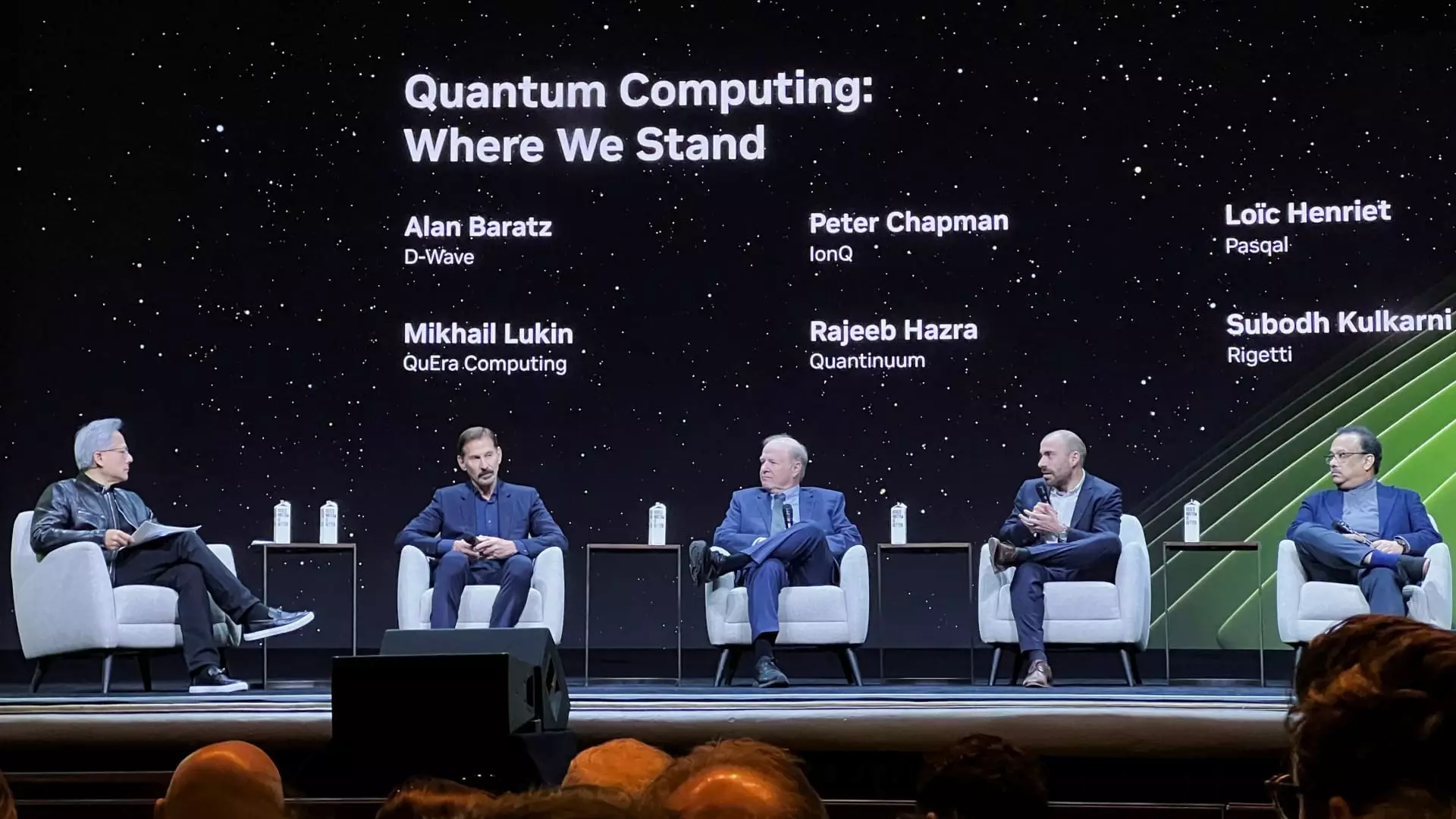The world of quantum computing is fraught with speculation and overblown optimism, a realm where futurists and scientists alike have scratched their heads in awe and frustration. Recently, Nvidia’s CEO Jensen Huang took a notable step back from his earlier comments on the logistics and timelines of quantum computing. During Nvidia’s “Quantum Day,” he candidly confessed that he may have set the timeline far too conservatively when suggesting 15 to 20 years until we see practical applications of quantum technologies.
Huang’s original remarks had sent ripples through the quantum computing sectors, invoking the age-old sentiment of caution against overhype. Yet, at this latest conference, he framed his admission as a moment of vulnerability rarely seen in corporate leaders: “This is the first event in history where a company CEO invites all of the guests to explain why he was wrong.” While admirable, it raises an intriguing question: is Huang more concerned about the repercussions for Nvidia, or does he genuinely champion the future of quantum computing development?
Contrasting Visions: Nvidia and Quantum Startups
One can view Huang’s comments as kindling a new relationship between traditional computing and the nascent quantum industry, suggesting an intersection where these two realms might someday converge. He’s drawing parallels between Nvidia’s early struggles and those of fledgling quantum companies, which is a thoughtful but ultimately superficial observation. After all, Nvidia had the luxury of evolving within a semiconductor landscape that was more stable, predictable, and entrenched than what quantum startups face today. The rapidly evolving technological landscape and variable funding and interest levels make the challenges for quantum companies far less certain.
Another layer to this narrative is Huang’s admission of surprise at how his words could move financial markets, but isn’t this a double-edged sword? Nurturing an industry fraught with promise and peril involves an ethical responsibility not only to pioneer innovation but also to temper anxieties and expectations not with half-truths but with well-formed and strategic visions.
Nvidia’s Strategic Pivot to Quantum Integration
Interestingly enough, Huang’s seemingly abrupt shift seems strategic. Nvidia is not simply a bystander; as traditional computing hardware becomes increasingly entwined with quantum capabilities, the company faces a pressing need to leverage its resources for maximum output. Recently revealed plans to establish a research center in Boston, a hub for quantum technology and collaboration, hint at a recognition of essential symbiosis rather than mere coexistence.
What does this mean for businesses like Amazon and Microsoft, which are also vying for a stake? The gravity of quantum technology—coupled with its inherent complexities—demands partnerships that cross competitive lines. Huang’s acknowledgement of this nuance seems crucial. He must understand that navigating these partnerships will shape not only Nvidia’s future but could also redefine how industries expand into previously unattainable realms.
The Reality Check on Quantum Ambitions
As impressive as Huang’s disclosures about quantum technology’s potential may sound, it is essential to tackle the challenges head-on. While quantum bits, or qubits, promise a revolution in processing capabilities, they remain elusive beasts. Up to now, no quantum computer has demonstrated a definitive superiority over its classical counterparts for practical problem-solving—a harsh reflection of the industry’s premature aspirations.
Acknowledging this gap, Huang’s humorous remark about not knowing certain quantum companies were publicly traded seems to underscore his disconnection from a sector that often operates in a precarious balancing act of hype and reality. Yes, error correction was purportedly advanced by Google, but triumph over failed promises doesn’t warrant a blind rush into a utopian future.
A Look Ahead: The Direct Impact on Nvidia’s Core Business
A significant tension arises from the prospect that quantum computing could potentially outpace traditional computing avenues, and Huang himself appeared to ponder the implications of this at the Quantum Day event. Unlike prior statements claiming a linear trajectory of accelerated computing replacing classical methods, Huang’s current outlook appears reflective and pragmatic—adapting rather than resisting change is crucial to survival in tech.
Yet, how does this reconcile with the company’s primary revenue streams? If Nvidia builds capabilities within quantum computing without a clear vision or strategy on integrating these innovations, it risks diluting its foothold in the market. The success of Nvidia’s GPUs has altered how we conceive computational power; if quantum computing eventually supplants traditional methods, the very foundation of Nvidia’s business could become a relic of the past.
In this evolving landscape, the challenge lies in harnessing both technologies—not to replace one with the other but to merge capacities for unprecedented growth.

